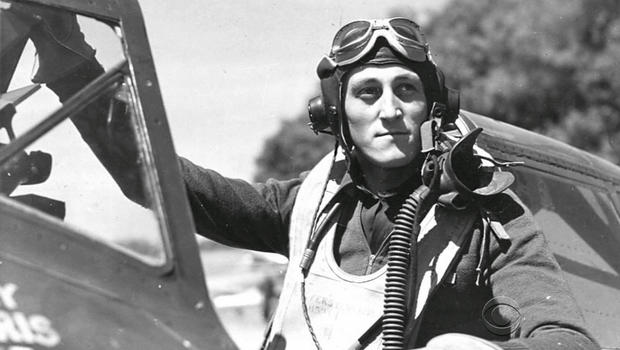Pentagon agency slow to ID, return remains of America's fallen
ARLINGTON, Va. – There are 83,000 Americans missing tonight.
They are troops who have never been accounted for in wars, from World War II to the present day.
A Pentagon agency called the Joint POW-MIA Accounting Command, or JPAC, is in charge of finding, identifying and returning their remains.
But CBS News has found this solemn mission has been undermined by lapses in management.
In 2012, for example, JPAC
spent $100 million, but identified only 80 of the missing.
"I think when we send an American to war and they're killed in action, it has clearly been the tradition of this country to bring them home," said his nephew, Bob Fenstermacher.
But Lt. Fenstermacher's remains were not found by the U.S. government. They were discovered by one of the private groups that have stepped in where the Pentagon's JPAC has failed.
Last year the Government Accountability Office said the missing persons mission is "being undermined by longstanding leadership weaknesses."
CBS News obtained an internal memo, written by a JPAC scientist, which alleges JPAC had a pattern of mishandling remains and failing to file critical reports, resulting in "abuse of scientific ethics" and "considerable wasted funds."
Congress ordered the Pentagon to increase identifications to 200 a year. At JPAC's headquarters in Hawaii, CBS News caught up with the commander, Maj. Gen. Kelly McKeague, brought in to meet the congressional mandate.
McKeague: "It's going to take more time. It's going to take more resources."
CBS News: "You're not going to make that deadline?"
McKeague: "We're not."
CBS News: Was Congress unreasonable in making that deadline?
McKeague: "I think Congress did not understand, did not really appreciate, the complexity of how tough this business is."
Complex, McKeague said, because remains are often badly degraded and frequently there's no DNA with which to make a match.
Lt. Robert Fenstermacher's remains were found by a private charity called History Flight. Mark Noah is its founder.
"Within the first hour, we'd found the first of the machine guns with matching serial numbers to the missing aircraft," Noah said.
Noah, a commercial pilot, sells rides on antique warplanes to raise money for his search.
"I tell people I do this work for the souls of the missing and the families they left behind," he said.
In 10 years, he's found several hundred remains, which he turns over to JPAC's lab for identification.
In 2013, he turned over 50 American remains from World War II found on the Pacific island of Tarawa. A JPAC team sent there three years earlier recovered three.
Some supporters of Noah say that dollar for dollar, he does a better job than JPAC. CBS News asked McKeague if that was a fair assessment.
"I don't think that's fair from the standpoint that Mark is focused on certain areas on certain cases. Ours is a worldwide mission," McKeague said.
Deno Zazzetti's brother Joe died fighting on Tarawa in 1943.
"I'm bitter. I'm upset. I'm upset with JPAC," Zazzetti said. "You can't get the answers from the people that you think should have the answers. With Mark Noah, I get some answers and I know he's trying and I know he's accomplished something."
Zazzetti, who is 84, hopes that he will live long enough to see his brother's remains found. He said he wants to "bring him back, bury him next to my mother. That would make her happy."
Congress has increased JPAC's budget by more than $300 million in the hope that it will make good on the promise to bring America's heroes home.
